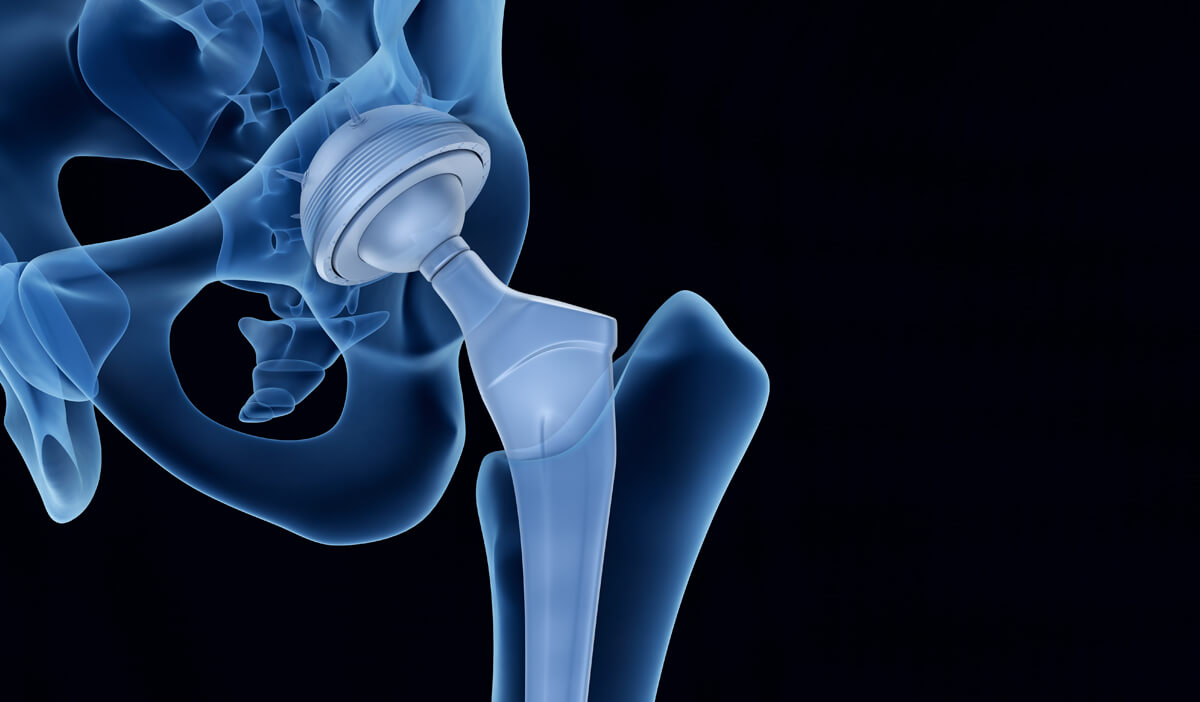This article is part of the Essential Guide to Hip Pain Relief.
If you are in good health yet have had hip pain and limited mobility that has not gone away after non-operative treatments, your surgeon may recommend hip surgery using the anterior approach. But, what is the anterior approach to surgical hip replacement?
The hip joint has one of the highest success rates for recovery after a surgical replacement. Keep reading to get answers to common questions patients have about the anterior approach to hip surgery.

Hip surgery FAQ
Get an overview of what you need to know about the anterior approach before having total hip replacement surgery.
What is the anterior approach to hip replacement?
In the anterior approach, a surgeon accesses your hip from the front—instead of the back—to replace your damaged cartilage or bone with an artificial hip joint made of strong and durable ceramic, plastic (usually polyethylene), or metal (typically chrome or titanium).
Learn more about the benefits of joint replacement
What are the advantages of the anterior approach? What are the risks?
The anterior approach to hip surgery is not as invasive as the traditional surgical method or posterior approach.
Some of the primary benefits of the anterior approach include that:
- It is “muscle-sparing,” which means less muscle is cut during this procedure. Overall, patients experience minor tissue trauma compared to other approaches, which make the entire healing process is less painful
- It typically requires a shorter hospital stay
- It makes rehabilitation go smoother and quicker (within the first six weeks)
- It improves your range of motion sooner, allowing you to return to work, driving, and other typical daily activities faster
- It provides a lower risk for dislocation and less limping
Find out how to know if it’s time for hip replacement
Some of the potential post-operative problems associated with any hip replacement surgery include these risks:
- Infection
- Blood clots and bleeding
- Changes in leg length
- Nerve injuries
- Dislocation or loosening of the hip joint
In rare cases, patients report not experiencing any significant pain relief or improved mobility after having hip surgery.
Discover if surgery is your best option for hip pain
How long will I have to stay in the hospital after I undergo the anterior approach to hip surgery?
Some patients go home the same day as their surgery or the following day. Others may stay in the hospital for up to four days.
Bed rest is not necessary for most patients who undergo hip surgery. In fact, moving your new hip joint is a good thing. It helps prevent your new hip from becoming too stiff while increasing blood flow and reducing the risk of getting a blood clot.
Since every patient is different, your hip surgeon will assess your condition after the procedure to determine if you are ready to go home.
They will want to make sure your pain is manageable and that you can walk around safely and complete your physical therapy exercises.
How long will I have to use a cane or walker?
If you lose your balance when walking, your care team may recommend an assistive device—like crutches, a cane, or a walker—to help prevent you from falling when getting around on your own.
You can get back to walking around unaided—up to six weeks after surgery—once you feel better and can walk without limping.
When can I drive?
Getting in and out of the car can potentially strain your new hip. It takes a few weeks to have good muscular control of your new hip. That is why the timeline for performing certain activities (like driving) will depend on your doctor or physical therapist’s advice. It takes an average of 6 weeks to recover enough to resume driving.
When can I return to work?
If you have a sedentary job, where you often sit or have limited amounts of physical activity, your surgeon may recommend going back to work sometimes within 2-6 weeks. If you have a job that is physically active and more labor-intensive, your surgeon may recommend waiting three months or more to go back to work safely.
Learn how to stay safe after hip replacement surgery
How long can I expect my new hip to last?
Having hip surgery provides lasting benefits. Medical studies have suggested that most patients with artificial hips see them last 20 years or longer, thanks to advances in technology.
Hip surgery at Logansport Memorial Hospital
When your hip problem keeps you from doing what you love and not getting better with non-invasive treatments, it might be time to talk to an expert about surgical options that can provide pain relief and help you get around again.
The anterior approach to hip replacement is technically demanding and challenging, and Logansport Memorial Hospital’s orthopedic hip surgeons are experts in this procedure.
Make an appointment to learn more about this specific approach to hip surgery. Call our orthopedics office at (574) 722-2663.
Explore our orthopedic services
You might also like:
- Is Surgery Your Best Option for Hip Pain?
- How Do You Know When It’s Time for a Hip Replacement?
- Three Benefits of Joint Replacement Surgery




